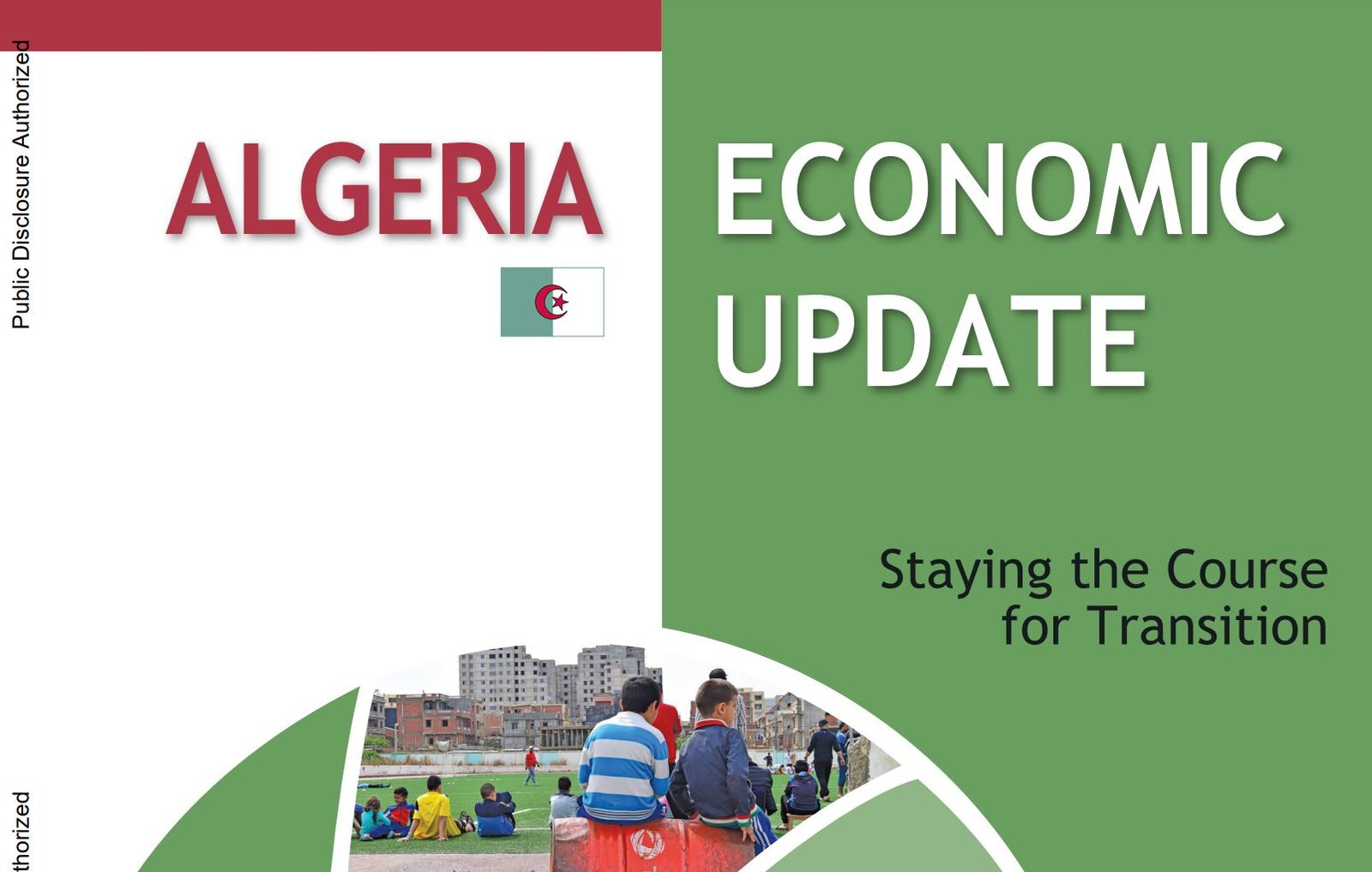This Algeria Economic Update provides an account of main recent economic developments and policies. It places them in a global and longer-term context and assesses the consequences of these developments and policy changes
for Algeria’s prospects. The report is intended for a wide audience, including policymakers, business leaders, financial market participants, and the community of analysts and professionals working in and on Algeria.
The report is organized into two chapters. Chapter 1 presents macroeconomic developments in Algeria for the first nine months of 2022. Chapter 2 describes the short- and medium-term outlook for the Algerian economy.
The deadline for considering data and preparing forecasts was October 31, 2022.
The recovery continued in the first semester of 2022, supported by nonhydrocarbon activity and crude oil production.
Nonhydrocarbon GDP accelerated in Q1-2022, supported by a continued recovery of the service sector and a partial recovery of agricultural activity, while economic activity proxy data, such as nighttime lighting and employment opportunities, suggest that the recovery extended into Q2. The recovery in S1-2022 was also supported by crude oil production’s return to its prepandemic level, in contrast to a moderate decrease in natural gas production. Inflation remained high, however, led by its food component. The authorities thus continued to implement measures to protect
purchasing power, primarily by increasing civil service salaries, implementing a transfer for first-time job seekers, and strengthening subsidy mechanisms for basic foodstuffs.
The continuing high level of global hydrocarbon prices prolonged the upturn of external balances.
In June 2022, the average export price of Algerian hydrocarbons had increased 70 percent year-on-year, and product export receipts reached USD 28.4 billion in S1-2022, also supported by a notable rise in non-hydrocarbon exports. Moreover, the recovery of imports was slowed down by the moderate rebound in domestic demand and import reduction measures, thus counterbalancing the increase in prices. As a result, these dynamics generated a current account surplus in S1-2022, reversing the downward trend of foreign currency reserves. The dinar also began to appreciate relative to the US dollar in the summer of 2022, and the more rapid appreciation relative to the Euro improved the terms of trade.
The budget deficit is expected to narrow moderately in 2022, as the strong increase in public expenditure compensates for most of the increase in revenues.
Despite the anticipated sharp rise in hydrocarbon revenues in 2022, the Complementary Finance Law for 2022 suggests a massive increase in public expenditure, primarily to finance the growth in payroll, transfers to first-time job seekers, and the food price stabilization policy. Public debt thus continued to increase rapidly in S1-2022, led by low-cost financing from public banks as part of the special refinancing program. The strong rise in liquidity observed in S1-2022 was therefore channeled to the State, as private sector credit showed only a moderate recovery. The overall budget deficit is expected to reach 5.7 percent of GDP in 2022, and public debt 54 percent of GDP.
The economic recovery should continue in 2023, supported by the nonhydrocarbon sector and public expenditure growth.
Hydrocarbon GDP growth (+0.5 percent), as well as the impact of the gradual continued recovery of the services and
agricultural sectors on non-hydrocarbon GDP growth (+3.1 percent), should support overall growth (+2.3 percent). The recovery of investment, led by the public and hydrocarbon sectors, should be more marked than that of private consumption. Export revenues should remain high, generating a current account surplus despite a moderate recovery of imports.
However, high hydrocarbon revenues are expected to be overcompensated in the budget by the increase in public expenditure. In the medium term, a fall in hydrocarbon export prices and volumes may lead to a gradual deterioration in external and budgetary balances.
The main risks to the macroeconomic outlook arise from fluctuations in global hydrocarbon prices, underscoring the importance of the Government’s current reform program.
While the sustainable improvement of external balances contributes to the economy’s resilience, a limited recovery of budgetary balances would strengthen their sensitivity
to hydrocarbon prices, in a context of uncertainty surrounding the dynamics of the global economy. High inflation also remains a concern despite the moderation of import prices, heightening the need for a prudent public expenditure and deficit financing policy.
Furthermore, pursuing the implementation of reforms to allow the private sector to become a driving force for
sustainable growth and improving the macroeconomic framework in a sustainable manner remain essential to
the growth and stability of Algeria’s economy.
Source and full report : https://documents1.worldbank.org/curated/en/099515101042323665/pdf/IDU04fda430200ad7041ff09aeb02ce1453d7bbc.pdf





